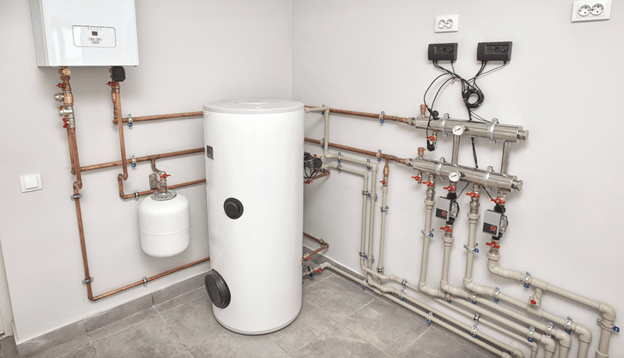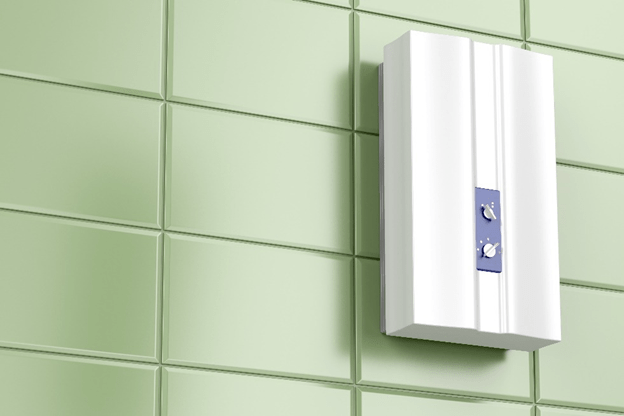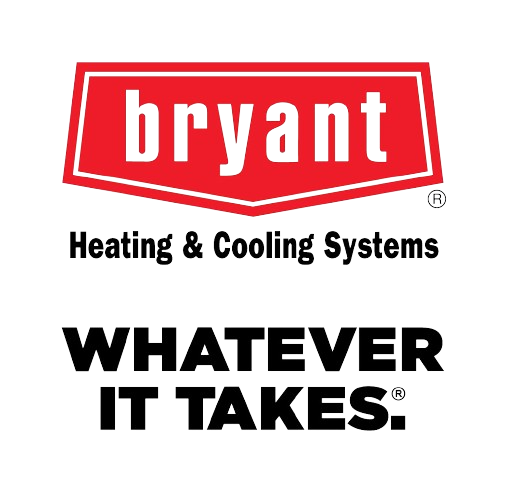
Water heaters are often an afterthought—until they stop working, that is! When it comes time to replace or repair a water heater, however, many homeowners are faced with the decision of keeping a traditional water heater or “upgrading” to a tankless model—but which one is best?
Read on to find out more about each type of water heater and which one is best for you.
Traditional Water Heaters
“Traditional” water heaters produce and store hot water in large tanks and are the most common water heaters found in homes today. However, their large size and associated maintenance costs have caused many homeowners to reconsider their benefits compared to tankless models.
How Traditional Water Heaters Work
Traditional water heaters consist of a large, insulated water tank heated by a burner underneath. An exhaust flue runs through the center of the water tank, providing both exhaust for the burner and a more efficient means of heating the water within the tank.
Cold water is fed into the very bottom of the water tank, where it’s then heated to a comfortable temperature by the burner below. As the water heats, it “rises” to the top of the tank where it’s then sent through a hot water outlet to sinks, showers, and other plumbing.
Though this system may be very simple, it’s quite clever! However, does this clever simplicity make traditional water heaters efficient?
Pros and Cons of Traditional Water Heaters
The traditional water heater’s biggest benefit is also its biggest drawback: heating and holding large quantities of hot water. While having large quantities of hot water available in an instant is certainly convenient—and sometimes necessary—it requires larger amounts of space and fuel. As a result, the “pro” of convenience comes with the “con” of higher water heater costs and space requirements.
Tankless Water Heaters

How Tankless Water Heaters Work
Where traditional water heaters heat an entire tank of water, tankless water heaters heat water as it runs through a coil of piping. Here, water enters the piping coil cold and gets heated by a gas or electric heater. As you can probably imagine, this system doesn’t require much space—most tankless water heaters are about the size of a large briefcase!
Pros and Cons of Tankless Water Heaters
Since tankless water heaters don’t need to heat and store a large amount of hot water, they consume considerably less space and fuel than traditional water heaters. However, their slim profiles and fuel savings can sometimes come at a cost: Since they don’t store any hot water, they can only make so much hot water available at a given time. As a result, tankless water heaters are often impractical for large-scale hot water delivery, such as in commercial and industrial facilities.
Which Type of Water Heater Is Right for You?
Choosing the best water heater for you ultimately comes down to how much hot water you need at a given time, as well as the condition and type of any existing water heater you might already have. However, tankless water heaters are quickly becoming the preferred option for most homes and can usually deliver the same quantities of hot water at significantly less cost. Plus, most tankless water heaters last at least 20 years.
For more information on our water heaters and maintenance services, call our Coachella Valley plumbing professionals at 760-327-8718. Our team is available 24/7 and never charges overtime or after-hour fees.

